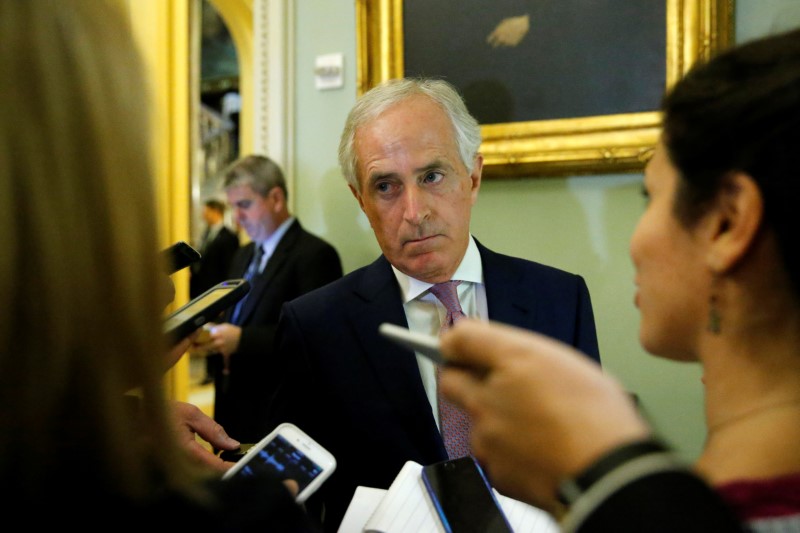By Patricia Zengerle
WASHINGTON (Reuters) - The chair of the U.S. Senate Foreign Relations Committee said that abrupt rejection of the Iran nuclear deal by the incoming Trump administration could create "a crisis" and that he did not expect such an approach.
"To tear it up on the front end, in my opinion, is not going to happen. Instead, we will begin to radically enforce it," Senator Bob Corker told reporters on Friday at a breakfast sponsored by the Christian Science Monitor.
He said he expected strong enforcement of the international agreement, announced in July 2015, in which Iran agreed to curtail its nuclear program in exchange for relief from crippling economic sanctions.
Concern about the Iran deal under Trump, who at times has pledged to pull Washington out of it, has led to worries that Tehran would be unable to attract foreign investment and that its economy could collapse.
"To me the prudent course of action is to make sure you enforce it, that you hold the UN Security Council accountable," Corker said. "And in the event the agreement falls apart, it's someone else that is causing it to fall apart, not a president coming in on day one and ripping up the agreement."
Every Republican in the U.S. Congress, including Corker, objected to the nuclear pact, signed by the United States, Britain, Russia, France, China, Germany and Iran. Dozens of Democrats also objected, but there was too much support for it to prevent its implementation last January.
At times on the campaign trail, Trump threatened to scrap the agreement, although he said at other times he would seek a better deal.
The Obama administration and other supporters of the nuclear pact said Washington's backing out would upset the U.S. partners that also signed and risk destabilization by allowing Iran to resume its nuclear development.
Corker said Washington had a choice, to strictly enforce the deal or come in and tear it up. "And you can create a crisis on the front-end by doing so," he said.
Corker advocated a wait-and-see approach. "In spite of all the flaws in the agreement, nothing bad is going to happen relative to nuclear development in Iran over the next few years. It's just not," he said.
